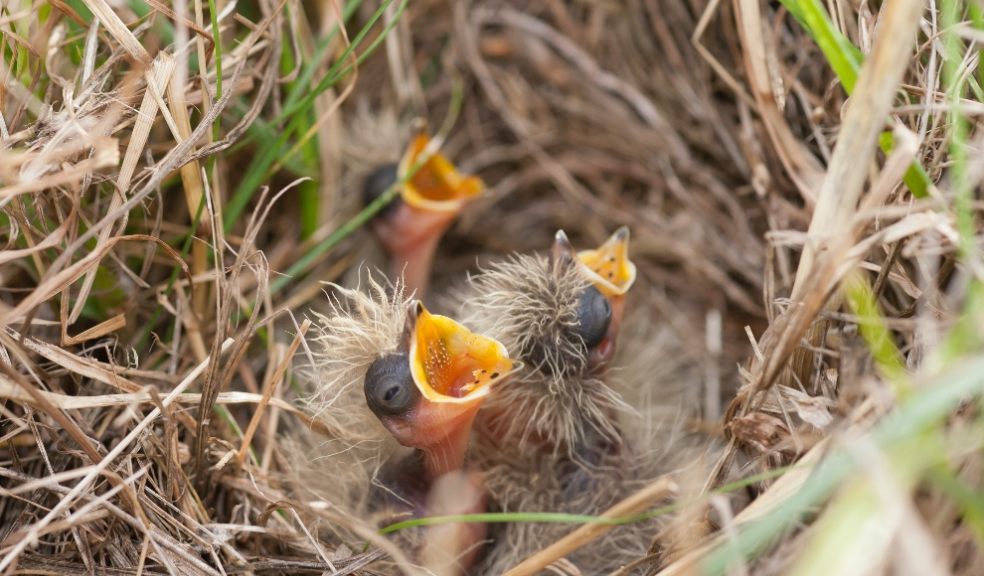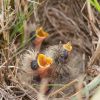
Watch Your Step in Devon to help the RSPB protect ground nesting birds this spring
People have been noticing nature much more during lockdowns, as garden birds and other wildlife have helped lift spirits and connect us to the world outside. A recent survey commissioned by the RSPB showed that 41% of participants reported seeing wildlife near their homes that they had never noticed before between 2020 and 2021.
Almost half of the UK population have said they have tried to attract nature to their gardens but the RSPB is keen to highlight that many of our threatened species don’t use gardens and nest boxes when raising young.
Over half of England’s most threatened breeding species nest on or near to the ground, including curlew, little tern, nightjar and lapwing.
“If you ask a child where bird’s nest, they are likely say a tree, hedge or nest box. It’s an image we’ve all grown up with but for some of our most threatened species it’s simply not true. Almost every natural habitat in the English countryside can be home to ground nesting birds and these threatened species are under increasing pressure due habitat loss, predators and climate change. Yet we can all help protect them from disturbance by simply following the Countryside Code and keeping to footpaths.” Sara Humphrey, Communications Manager
In Devon, farmlands can be home to threatened ground nesting species including skylark and lapwing. As the vulnerable chicks are easy prey for lots of predators, dogs running through nesting sites can be very stressful for them, so sticking to paths and keeping dogs on leads in these areas can help give them the best chance of survival.
As birds nesting on the ground are at higher risk from predators; the nests and eggs they contain are often extremely well camouflaged, making them very hard to see and avoid.
“A skylark egg can be as small as 17mm, that’s around the width of a 5p piece. And when those eggs hatch, chicks can be just as well camouflaged and vulnerable. When scared, a chick’s instinct is often to stay quiet and avoid detection, so if you see an adult bird calling out in distress or trying to catch your attention, back away carefully to help protect nests from harm.” Mike Shurmer, Head of Species for RSPB England.
The RSPB’s conservation scientists have developed methods to help protect nesting birds from environmental threats including climate change, wildfire and sea level rise, which can be delivered through managing landscapes for wildlife. They have seen fantastic results for species including roseate tern and stone curlew, but to protect ground nesting birds across the countryside, everyone can play a part by watching where they step. To find out more, search #WatchYourStep on twitter or Facebook.
The RSPB works closely with partners and communities to protect wildlife across their network of over 300+ UK nature reserves and in the wider countryside. To find out more about RSPB reserves near you or to help fund the vital work the charity does to protect wildlife, visit www.rspb.org.uk

















